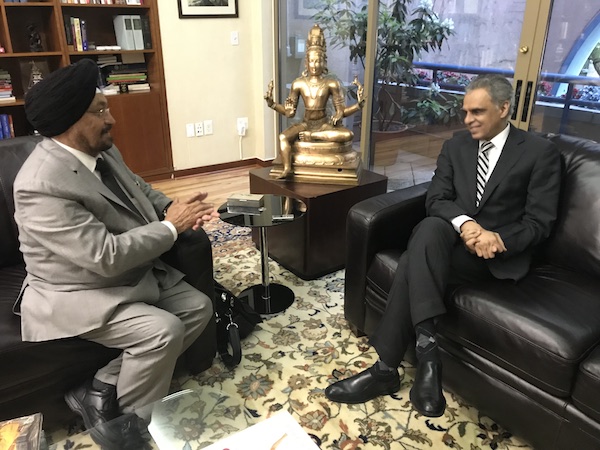
Colombo (TIP): Sri Lankan agricultural minister Mahinda Amaraweera on June 1 met Indian High Commissioner Gopal Baglay and sought India’s help for food security and environmental protection in the island nation, as it faces the worst economic crisis in its post-independence history. Last month, India assured Sri Lanka to immediately supply 65,000 metric tonnes of urea to avoid any disruption to the current Yala cultivation season in Sri Lanka.
Yala is the season of paddy cultivation in Sri Lanka that lasts between May and August.
Sri Lankan Agriculture Minister Amaraweera met Indian High Commissioner Baglay and they had discussed the importance of bilateral cooperation for food security and environmental protection, a statement from the High Commission said. Sources said Amaraweera was keen on getting chemical fertiliser from India under the Indian Line of Credit. President Gotabaya Rajapaksa’s decision last year to ban chemical fertiliser imports in order to turn into a green economy has caused a food shortage with crop losses amounting to 50 per cent.
Rajapaksa a few weeks ago admitted his decision to ban chemical fertiliser to go 100 per cent organic was wrong.
The agriculturists have warned that the country may encounter a food shortage by mid-August in the ongoing economic crisis. India has committed more than USD 3 billion to debt-ridden Sri Lanka in loans, credit lines and credit swaps since January this year.
Sri Lanka is aiming to boost its agriculture sector to avoid any disruption in the agriculture market following the drop in the paddy cultivation in the Maha session.
Sri Lanka’s annual fertiliser imports cost USD 400 million. Farmers across Sri Lanka have intensified their protests due to the lack of fertiliser and being compelled to abandon their farmlands.
The chemical fertiliser ban, combined with bad weather, led to falling crop yields and contributed to inflation hitting a 47-month high of 8.3 per cent in October with food inflation at 11.7 per cent, Daily Mirror, an online news portal said. Sri Lanka has more than 2 million farmers and up to 70 per cent of its 22 million people are directly or indirectly dependent on agriculture. Sri Lanka’s economic crisis is caused in part by a lack of foreign currency, which has meant that the country cannot afford to pay for imports of staple foods and fuel, leading to acute shortages and very high prices. The crisis has provoked widespread protests calling for political reform and the resignation of President Gotabaya Rajapaksa. (PTI)





Be the first to comment